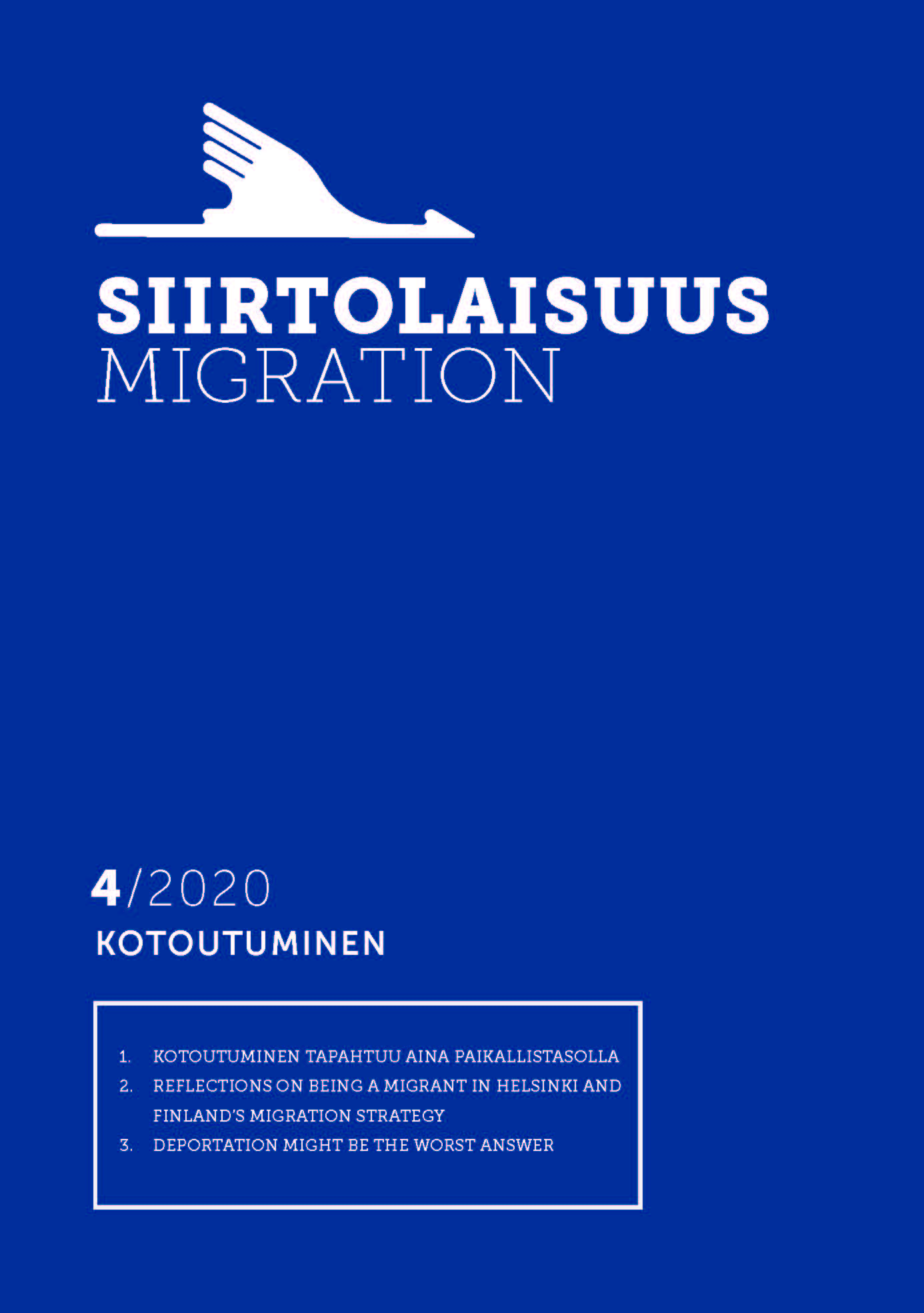Critical Social Inclusion as an alternative to integration discourses in Finnish and Canadian Integration Education Programs
Avainsanat:
Integration education programs, Critical Social Inclusion, Civic IntegrationismAbstrakti
This article represents a synopsis of research findings obtained during multiple case study fieldwork
in Finland and Canada (2015-2017) examining implementations of critical social inclusion in integration educations, specifically Swedish for Immigrants (SFI) and Language Instruction for Newcomers to Canada (LINC). Anti-oppressive methodologies (AOP), as well as perspectives integrated from Critical Whiteness Studies (CWS) and Critical Migration Studies (CMS) with their ideals of challenging structural racism and working for social change inform critical social inclusion as well as the study’s research design. The empirical findings show that social inclusion within SFI and LINC programs was tangled, episodic, and far from straightforward. Its implementation depended upon a number of enabling and disabling factors such as the role ascribed to language acquisition and critical citizenship perspectives in curricula, interrogations of civic integrationism and institutional whiteness within programs, as well as the prevailing political climates outside of the classroom. A pivotal conclusion is that if critical perspectives of social inclusion are to become a lived reality for all program participants, then majorities must also be subjected to integration regimes.
Tiedostolataukset
Julkaistu
Numero
Osasto
Lisenssi
Copyright (c) 2020 Tobias Pötzsch

Tämä työ on lisensoitu Creative Commons Nimeä 4.0 Kansainvälinen Julkinen -lisenssillä.




